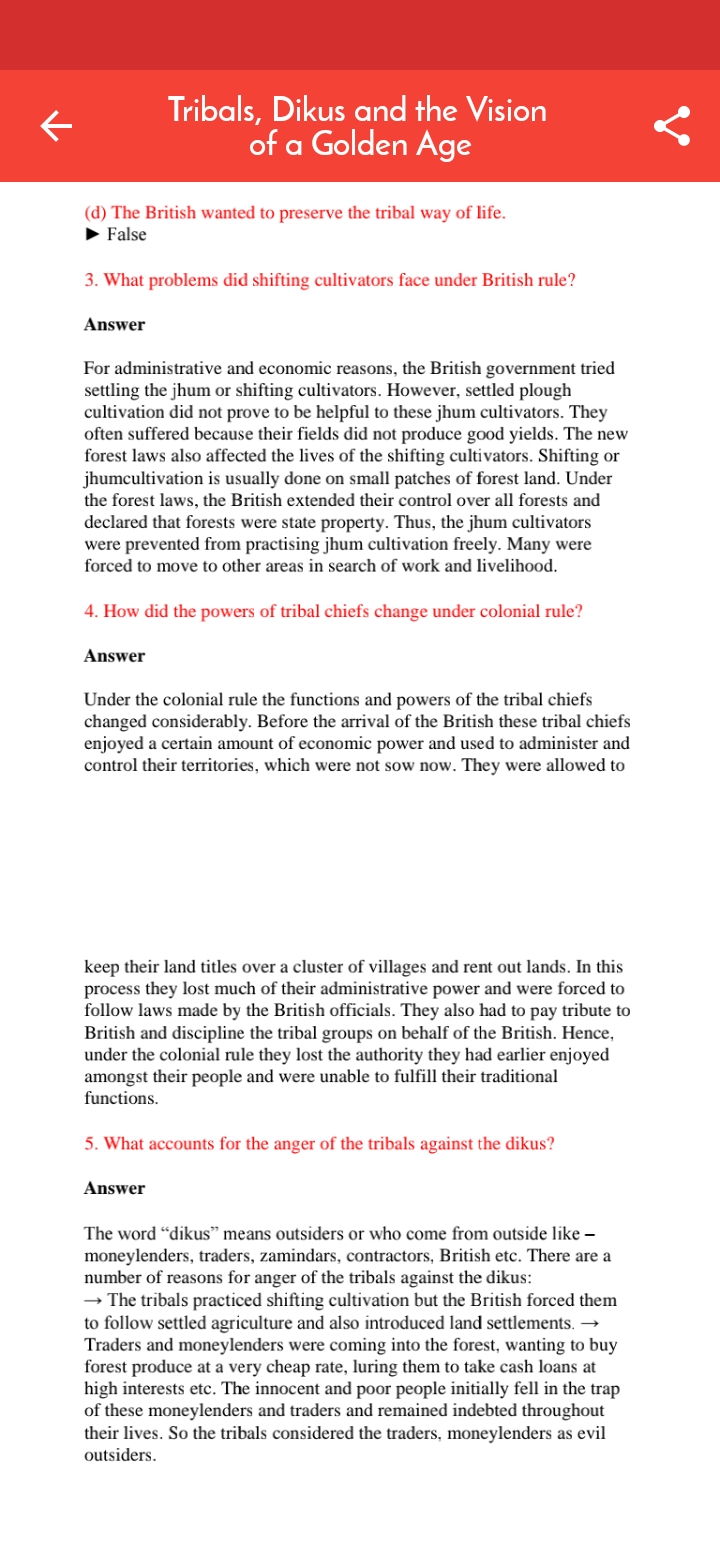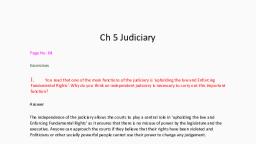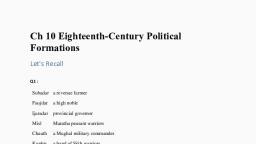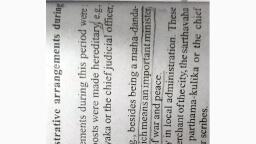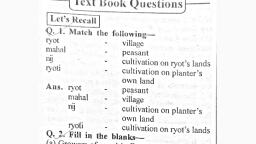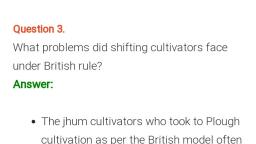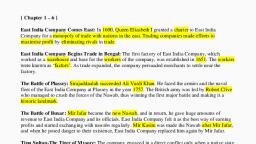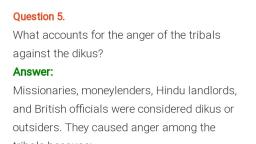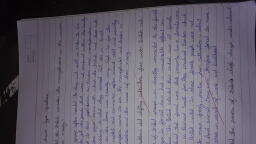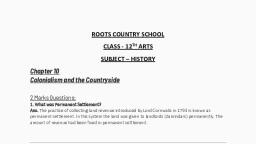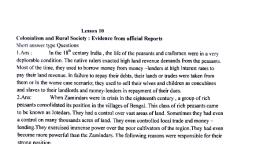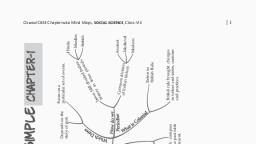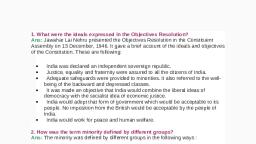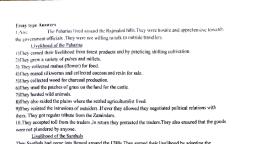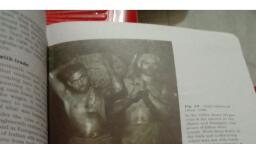Page 1 :
ro, , Tribals, Dikus and the Vision, of a Golden Age, , (d) The British wanted to preserve the tribal way of life., > False, , 3. What problems did shifting cultivators face under British rule?, Answer, , For administrative and economic reasons, the British government tried, settling the jhum or shifting cultivators. However, settled plough, cultivation did not prove to be helpful to these jhum cultivators. They, often suffered because their fields did not produce good yields. The new, forest laws also affected the lives of the shifting cultivators. Shifting or, jhumcultivation is usually done on small patches of forest land. Under, the forest laws, the British extended their control over all forests and, declared that forests were state property. Thus, the jhum cultivators, were prevented from practising jhum cultivation freely. Many were, forced to move to other areas in search of work and livelihood., , 4. How did the powers of tribal chiefs change under colonial rule?, Answer, , Under the colonial rule the functions and powers of the tribal chiefs, , changed considerably. Before the arrival of the British these tribal chiefs, enjoyed a certain amount of economic power and used to administer and, control their territories, which were not sow now. They were allowed to, , keep their land titles over a cluster of villages and rent out lands. In this, process they lost much of their administrative power and were forced to, follow laws made by the British officials. They also had to pay tribute to, British and discipline the tribal groups on behalf of the British. Hence,, under the colonial rule they lost the authority they had earlier enjoyed, amongst their people and were unable to fulfill their traditional, functions., , 5. What accounts for the anger of the tribals against the dikus?, Answer, , The word “dikus” means outsiders or who come from outside like —, moneylenders, traders, zamindars, contractors, British etc. There are a, number of reasons for anger of the tribals against the dikus:, , — The tribals practiced shifting cultivation but the British forced them, to follow settled agriculture and also introduced land settlements. >, Traders and moneylenders were coming into the forest, wanting to buy, forest produce at a very cheap rate, luring them to take cash loans at, high interests etc. The innocent and poor people initially fell in the trap, of these moneylenders and traders and remained indebted throughout, their lives. So the tribals considered the traders, moneylenders as evil, outsiders., , a
